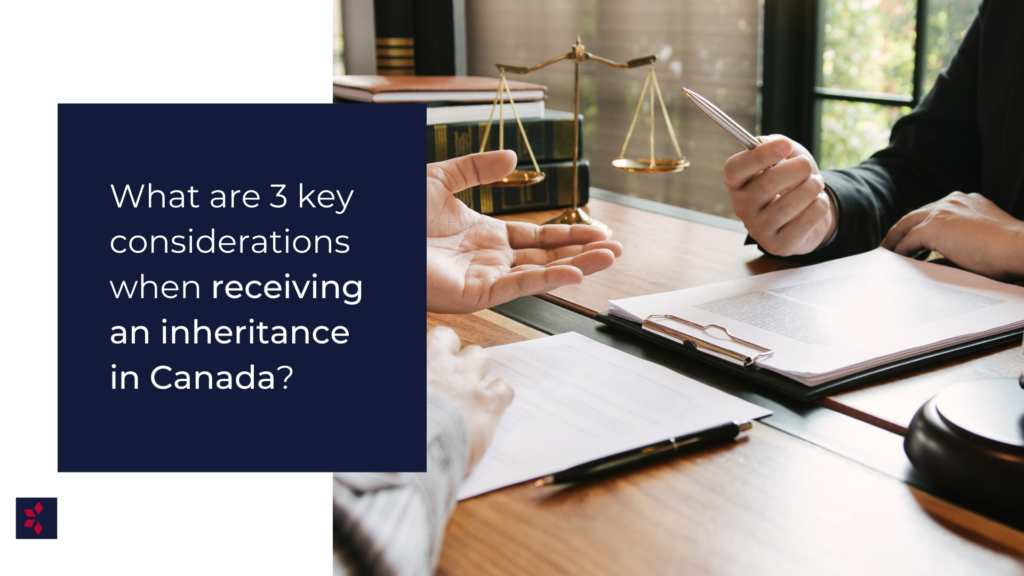What Are 3 Key Considerations When Receiving An Inheritance In Canada?

It is estimated that Canada’s baby boomers and early Gen Xers will inherit $1 trillion over the coming 20 years in a monumental transfer of wealth. If you are one of these beneficiaries, here are 3 key considerations that will help prepare you and make it easier to tackle the difficult decisions that you will need to make about your inheritance.
Go Slowly And Don’t Rush Capital Allocation Decisions
A sizable inheritance may bring about new financial capabilities, but it may also come with feelings of grief or sadness for the loss of someone close to you. This may lead to impulsive asset allocation as you settle into the reality of the situation. For this reason, it is important to take time to process your feelings before rushing into capital allocation decisions.
Keeping the inherited funds liquid in cash or cash equivalent securities, such as money market funds or treasury bills, may allow you to temporarily park these funds until you are ready to begin planning. When you are ready, take time to reflect on your goals and what is most important to you to help you decide where and how to allocate the inherited capital.
Be Mindful Of Co-mingling Assets
In Ontario, inheritances are not only excluded from taxation, but also do not form part of Net Family Property and are not subject to division upon marital breakdown, even if this wealth was acquired during a marriage.
However, it is possible, and often the case, that these assets become inadvertently co-mingled with a spouse’s assets, ultimately leading to inclusion in the division of property in the event of a separation or divorce.
What About Gifts And Legacy?
Whether you plan to make gifts to family members or to a cause you care about with your inheritance , there are several areas to consider.
When gifting some of your inherited money to family members, the choice often lies between making bequests in your own will, or making gifts during your lifetime to enable you to witness their impact. The choice often comes down to your age and life expectancy, and those of your beneficiaries. In situations where you are unsure of a beneficiary’s ability to manage these assets effectively, you may wish to consider using a trust.
For gifting to a cause you care about, you may wish to explore the use of Donor-Advised Funds. A Donor-Advised Fund, or DAF, is a charitable investment account sponsored by an independent public charity to which a donor can contribute. DAFs provide you with the ability to recommend to the sponsor which registered charities will receive grants from the fund and at the same time receive a charitable donation receipt.
The Bottom Line
There are many courses of action you may take with inherited capital—but investing may be the way to go if you wish to leave a legacy, or to make a greater philanthropic impact.
This content is provided for general informational purposes only and does not constitute financial, investment, tax, legal or accounting advice nor does it constitute an offer or solicitation to buy or sell any securities referred to. Individual circumstances and current events are critical to sound investment planning; anyone wishing to act on this content should consult with his or her financial partner or advisor.
Mother Denim
Great content! Keep up the good work!
Bloom Investment Counsel, Inc.
Thank you for reading our article and providing such a positive feedback!